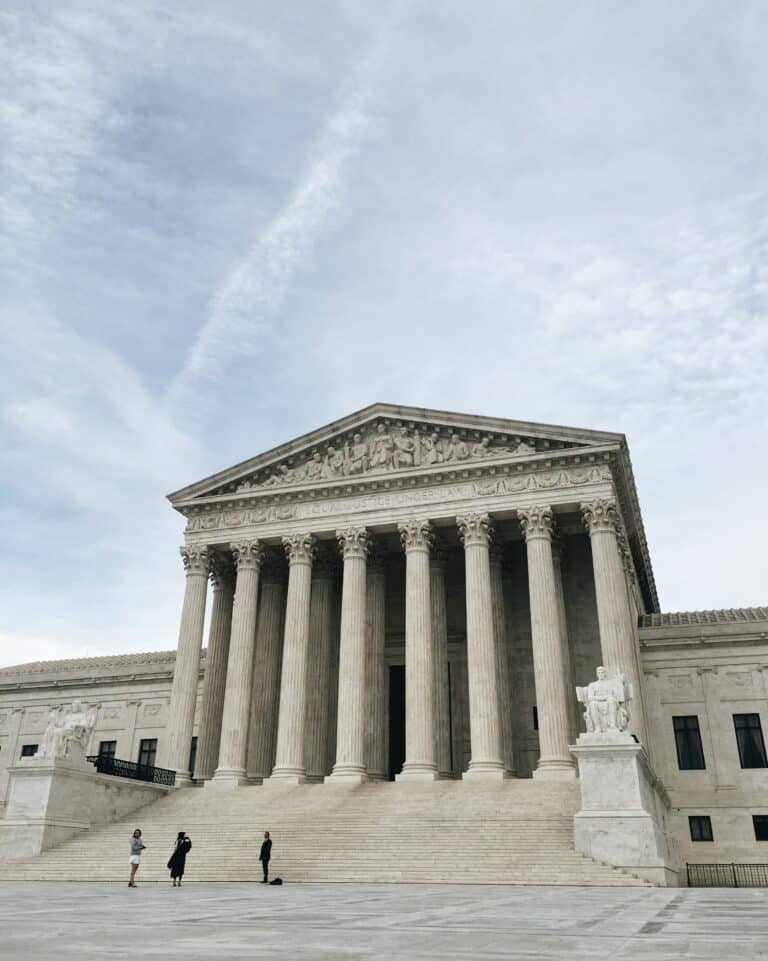
Charlotte Garden is the Julius E. Davis Professor of Law at the University of Minnesota Law School. She is a co-author of casebooks in Labor Law (with Richard Griffin, Joe Slater, and Anne Marie Lofaso), and Employment Law (with Mark Rothstein, Lance Liebman, Kimberly Yuracko and Paul Secunda). Professor Garden’s scholarly articles have appeared in the University of Pennsylvania Law Review, Emory Law Journal, Boston University Law Review, George Washington Law Review, Fordham Law Review, and the William & Mary Law Review. In 2019, Cambridge University Press published Professor Garden’s co-edited volume Cambridge Handbook on American Labor Law: Reviving American Labor for a 21st Century Economy (with Richard Bales).
Charlotte Garden is an associate professor at Seattle University School of Law.
To the extent there was ever doubt on this point, it is now clear that the Trump Administration will not prioritize robust enforcement of employment law mandates. One key example: the Department of Justice’s decision not to support the NLRB’s individual arbitration rule before the Supreme Court. (The NLRB will represent itself before the Supreme Court, and DOJ will likely participate as amicus in support of the employer.) This rule – which OnLabor has covered extensively – protects employees’ ability to aggregate claims, including claims that would be too small to pursue on an individual basis. But given the uncertain fate of the NLRB’s individual arbitration rule, is there anything that states can do to improve enforcement of workers’ rights? This post explores one state innovation: California’s Private Attorneys General Act (PAGA).
Like many other jurisdictions, California has an agency – the Labor & Workforce Development Agency – that is responsible for enforcing the state’s labor code, which covers wages and hours, discrimination, licensing, child labor, and more. But, like many such agencies, the LWDA has far too few resources to investigate every alleged law violation. This is where PAGA comes in: if the LWDA declines to investigate a complaint (or it investigates but does not issue a citation) arising under a laundry list of California work law statutes, PAGA allows an employee to step into the shoes of the LWDA to seek statutory damages for labor code violations. In other words, PAGA authorizes representative actions, in which individual plaintiffs can allege that their employer has violated the law with respect to a large group of employees. If they win, PAGA generally authorizes default statutory damages of up to $100 per worker per pay period for a first violation, and twice that for subsequent violations, though the underlying employment statutes can set different penalty amounts – but three-quarters of any recovery goes to LWDA to fund its enforcement and education efforts
PAGA claims are similar to class actions in some ways, including that courts review the adequacy of PAGA settlements, which bind the state and other employees. But there are also important differences between PAGA claims and class actions, including that PAGA claims do not require class certification, which can be a substantial hurdle for employee-plaintiffs. In addition, pre-dispute agreements that purport to waive workers’ rights to bring PAGA claims are unenforceable as a matter of public policy – and this rule may prove to rest on firmer ground than the DR Horton/Murphy Oil rule.
That workers cannot waive their PAGA claims does not necessarily mean that they cannot agree to arbitrate those claims – that remains somewhat unclear. The Ninth Circuit recently held in an unpublished opinion that employees can commit, in pre-dispute agreements, to arbitrate their PAGA claims. However, four days after the Ninth Circuit issued its opinion, a California Court of Appeal held the opposite, reasoning that a PAGA plaintiff stands in the shoes of the state, which cannot be bound by an arbitration agreement that it did not sign.
Whether PAGA claims are subject to pre-dispute arbitration agreements is a less significant issue than it might appear at first glance, however. This is because employers are unlikely to want to run the risk that an employee could win a substantial PAGA award in arbitration, where appeal rights are quite limited. As a result, even if representative PAGA claims are arbitrable, many employers may elect to exclude them from their pre-dispute arbitration agreements. For example, in O’Connor v. Uber – where the LWDA estimated that Uber faced over $1 billion in potential PAGA penalties – Uber responded to a district court holding that its PAGA waiver was unenforceable by modifying its arbitration agreement to carve out representative PAGA claims. In other words, even if PAGA claims can be included in pre-dispute arbitration clauses, it is not clear that they generally will be.
To be sure, PAGA is not a complete solution to barriers to the enforcement of work law. PAGA’s statutory damages may be substantially less than employees’ actual damages, and even then, courts may award less than the full amount of damages available under PAGA. Further, multiple employees can file separate PAGA claims, creating a risk that the employer will rush to settle the weakest case first in a “reverse auction” scenario – indeed, plaintiffs’ counsel in O’Connor v. Uber has charged that this is precisely what is happening in Price v. Uber, in which the parties have proposed to settle drivers’ PAGA claims against Uber for $7.75 million. (The trial court judge has preliminarily rejected the proposed settlement in Price, and another hearing is scheduled for later this week.) Still, PAGA helps facilitate resolution of employment claims on a large enough scale to attract competent counsel, even in an era of rampant individual arbitration clauses – and this is true whether representative PAGA claims end up in an arbitral or a judicial forum. Thus, it is unsurprising that PAGA is beginning to garner attention outside of California –perhaps a similar bill now pending in the New York legislature is a sign that PAGA-like remedies will begin to catch on more widely.










Daily News & Commentary
Start your day with our roundup of the latest labor developments. See all
November 23
Workers at the Southeastern Pennsylvania Transportation Authority vote to authorize a strike; Washington State legislators consider a bill empowering public employees to bargain over workplace AI implementation; and University of California workers engage in a two-day strike.
November 21
The “Big Three” record labels make a deal with an AI music streaming startup; 30 stores join the now week-old Starbucks Workers United strike; and the Mine Safety and Health Administration draws scrutiny over a recent worker death.
November 20
Law professors file brief in Slaughter; New York appeals court hears arguments about blog post firing; Senate committee delays consideration of NLRB nominee.
November 19
A federal judge blocks the Trump administration’s efforts to cancel the collective bargaining rights of workers at the U.S. Agency for Global Media; Representative Jared Golden secures 218 signatures for a bill that would repeal a Trump administration executive order stripping federal workers of their collective bargaining rights; and Dallas residents sue the City of Dallas in hopes of declaring hundreds of ordinances that ban bias against LGBTQ+ individuals void.
November 18
A federal judge pressed DOJ lawyers to define “illegal” DEI programs; Peco Foods prevails in ERISA challenge over 401(k) forfeitures; D.C. court restores collective bargaining rights for Voice of America workers; Rep. Jared Golden secures House vote on restoring federal workers' union rights.
November 17
Justices receive petition to resolve FLSA circuit split, vaccine religious discrimination plaintiffs lose ground, and NJ sues Amazon over misclassification.